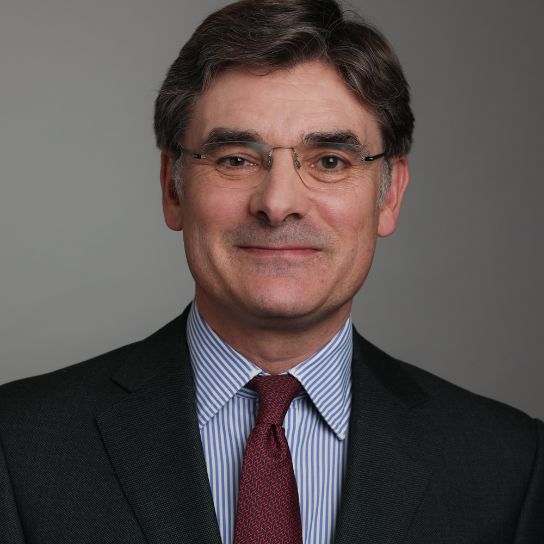The Financial Conduct Authority (FCA) and the Prudential Regulation Authority (PRA) have proposed not to introduce financial incentives for whistleblowers, concluding that introducing financial incentives would be unlikely to improve the number or quality of disclosures received from whistleblowers (see here).
In reaching their conclusions, the FCA and the PRA considered:
- the US whistleblowing regime;
- the Parliamentary Commission on Banking Standards report ("Changing banking for good"), which recommended that the FCA and the PRA undertake further research into the impact of financial incentives to the US whistleblowing regime, with a view to possibly introducing a similar regime in the UK; and
- the UK Department of Business, Innovation and Skills' response to the Whistleblowing Framework call for evidence, which concluded that the UK Government "does not believe financial incentives should be introduced as an integral part of the whistleblowing framework to reward whistleblowers".
Ultimately, the FCA and the PRA considered that introducing such incentives could create several "moral and other hazards", including:
- malicious reporting: the financial incentives may lead to vexatious or speculative disclosures, potentially to the detriment of innocent parties (and their reputations);
- entrapment: market participants might seek to ‘entrap’ others so that they could claim a reward for later blowing the whistle;
- conflicts of interest: if financial rewards are available, the reliability of a whistleblower's disclosure may be called into question (by a court in a criminal prosecution for example); and
- misalignment with regulatory duties and public perception: financial incentives would reward whistleblowers for performing what is arguably their regulatory duty as a regulated firm or Approved Person. This "could reinforce perceptions that the financial sector is at odds with the rest of society".
Consideration of the US whistleblowing regime
The FCA and the PRA analysed the US whistleblowing regime and concluded that financial incentives have not led to a significant increase in the number or quality of disclosures. Very few whistleblowers are eligible for financial rewards in the US, as awards can only be made when a disclosure leads directly to a successful regulatory or criminal case and funds are recovered (i.e. by way of financial penalty). Further, the regulators found that the US whistleblowing regime provides insufficient protection for whistleblowers whose disclosure does not lead to an enforcement outcome.
Existing UK whistleblowing regimes
The FCA and the PRA also considered the existing reward for information schemes operated by certain UK agencies, such as the Competition and Markets Authority and HMRC, and identified that those schemes are subject to various safeguards which would not necessarily be available to whistleblowing disclosures made to the FCA and the PRA.
Proposed changes
The FCA and the PRA are continuing to implement several changes to their handling of whistleblowing disclosures, which are intended to encourage whistleblowers to make disclosures to the FCA and the PRA. For example:
- the FCA has more than doubled the size of its whistleblowing unit;
- both regulators now offer those whistleblowers providing complex or particularly sensitive information face-to-face meetings with their whistleblowing units; and
- from autumn 2014 both regulators will begin publishing annual reports on the whistleblowing disclosures they receive and how they handle them.
Rather than introduce financial incentives for whistleblowers, later this year the FCA and the PRA will publish proposals on whistleblowing. These proposals may potentially take the form of new rules requiring firms to implement effective internal mechanisms and safeguards to protect individual employees and improve senior management accountability. In the regulators' view, introducing financial incentives would undermine their supervisory approach as well as the intended cultural improvements they wish to encourage within firms.
Comment
In the context of recent scandals in the financial services sector, the effectiveness of whistleblowing procedures is a high profile area for both the FCA and the PRA and firms will be interested to learn that the regulators expect to receive approximately 1,200 disclosures in 2014, which would equate to a 30% increase against the number received in 2013.
The FCA and the PRA's conclusions demonstrate that their focus is to ensure that whistleblowers feel that they can disclose appropriate information to either their employers or the regulators and that there is sufficient protection in place for those who do make disclosures. Rather than introducing financial incentives, which they view as arguably counterproductive, the regulators intend to improve the whistleblowing procedures and safeguards within firms as well as within the FCA and the PRA. We await the FCA and the PRA's proposals later this year.
This note was produced by Ade Adesiyan, Nick Wright and Kim Everitt.
Key contacts
Disclaimer
The articles published on this website, current at the dates of publication set out above, are for reference purposes only. They do not constitute legal advice and should not be relied upon as such. Specific legal advice about your specific circumstances should always be sought separately before taking any action.














